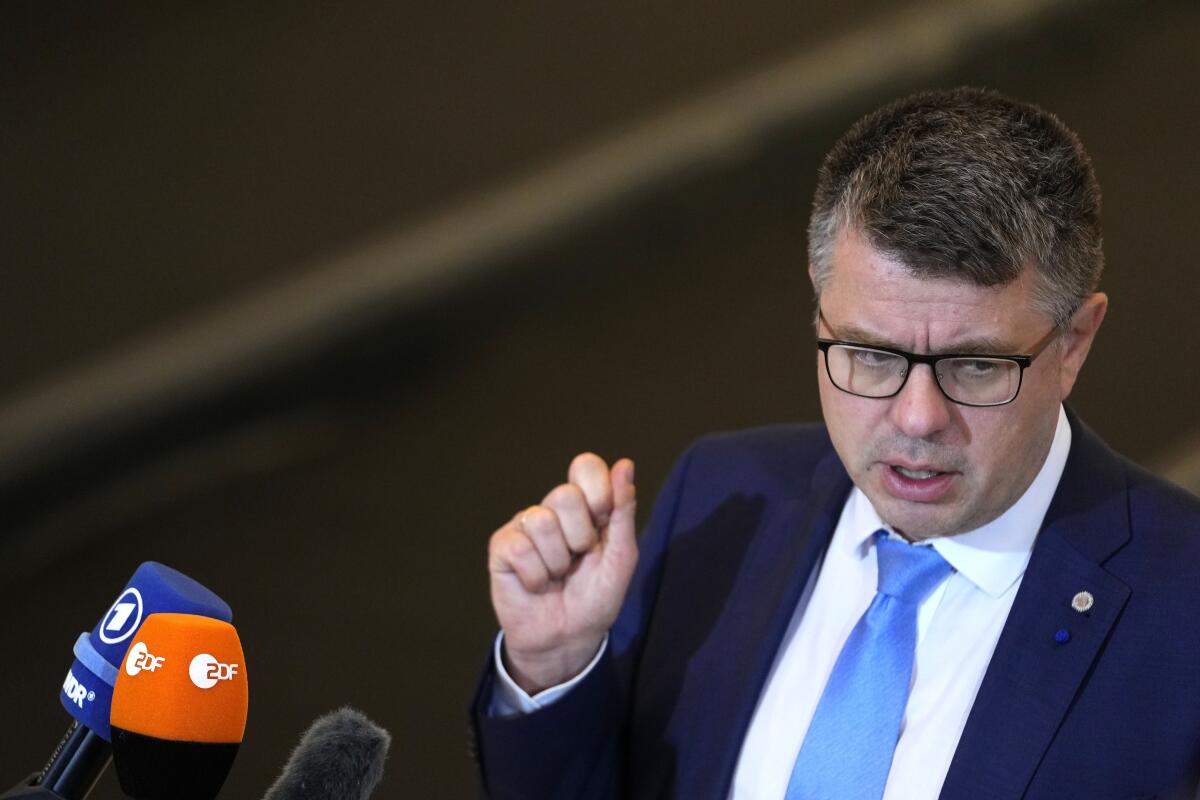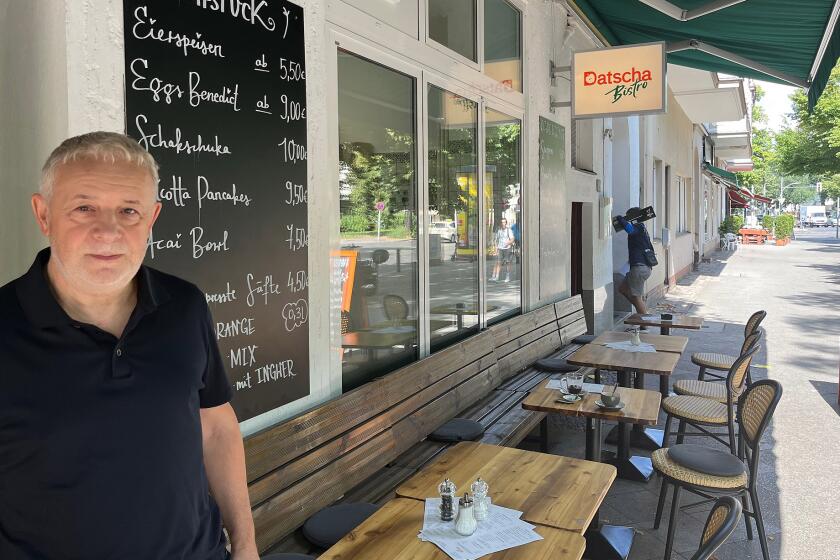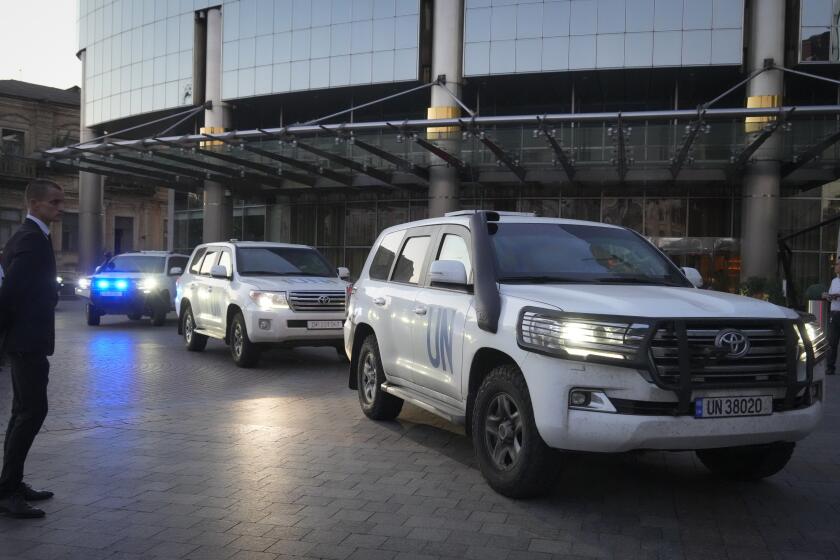EU countries wrestle with a proposed ban on Russian tourists

PRAGUE â Northern members of the European Union called Wednesday for the 27-nation bloc to impose a broad ban on tourist visas for Russian citizens, insisting that the issue is a matter of national security as the war in Ukraine drags on.
But at a meeting of EU foreign ministers in the Czech capital, Prague, other member countries, such as France, Germany and Belgium, argued that itâs important not to punish Russian people who may very well oppose the war or need to enter Europe for humanitarian purposes.
The EU already tightened visa restrictions for Russian officials and businesspeople in May under a 2007 agreement that had eased travel between Russia and Europe. But calls are mounting from, most notably, Poland and the Baltic countries â Estonia, Latvia and Lithuania â for a broader ban on tourists.
âWe need to immediately ramp up the price to Putinâs regime,â Estonian Foreign Minister Urmas Reinsalu told reporters. âThe loss of time is paid by the blood of Ukrainians.â
Uniform rules are supposed to apply across the 26 countries that make up Europeâs passport-free travel area, called the Schengen area, but Reinsalu said that âitâs our national competence, under the principle of national security, to decide the issues of entry to our soil.â
Over the years, several countries have re-introduced border controls for security reasons in the Schengen area, a vast swath of the Continent where Europeans and visitors can travel freely without ID checks.
Germany is home to one of the worldâs biggest Russian diaspora communities, but the Ukraine war has sparked incidents of ostracism and discrimination.
The foreign minister of Finland, which shares the EUâs longest border with Russia, underlined that his country would, as of Thursday, slash the number of visas being delivered to Russian citizens to 10% of normal.
âItâs important that we show that, at the same time when Ukrainians are suffering, normal tourism shouldnât continue business as usual,â Pekka Haavisto said. âFinland has already made our decision to limit the amount of tourist visas. We hope that the whole European Union will do similar decisions.â
Amid what appear to be entrenched divisions over the issue, Danish Foreign Minister Jeppe Kofod said he hoped that a common EU position could be found, pointing to the fact that Ukrainian men do not have the luxury to choose whether they can leave their war-torn country.
âIt has to have consequences on all fronts. We want to limit visas for Russian tourists, send a clear signal to Putin, to Russia, [that] what he is doing in Ukraine is totally unacceptable,â Kofod said, referring to Russian President Vladimir Putin.
Heavy fighting between Russian and Ukrainian forces near the Zaporizhzhia nuclear plant has raised international concern over a potential catastrophe.
But European countries farther from Russia and Ukraineâs borders are reluctant to go too far, and it appears likely that EU countries will simply agree to use the 2007 agreement to make it more time-consuming and costly for Russian citizens to get a visa.
Belgium Foreign Minister Hadja Lahbib said it was important to avoid creating a patchwork system âwhere Russians could do a kind of visa-shopping among the countries of the European Union.â
âItâs very important to target the right people â that is, those who support this unjust war against Ukraine and also those who try to evade the sanctions that we have imposed,â she said.
French Foreign Minister Catherine Colonna agreed.
âItâs important to distinguish between those responsible for the war â in the front row the Russian president, his associates and all those who support his war efforts â and Russian citizens, artists, students, journalists. The first are responsible for the war. The others, no,â she said.
More to Read
Sign up for Essential California
The most important California stories and recommendations in your inbox every morning.
You may occasionally receive promotional content from the Los Angeles Times.












